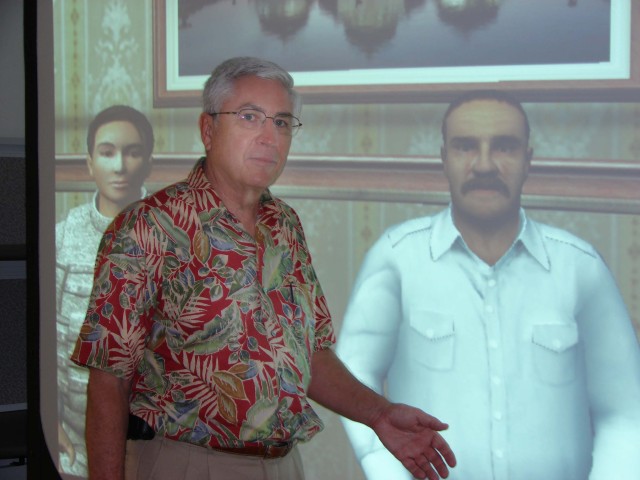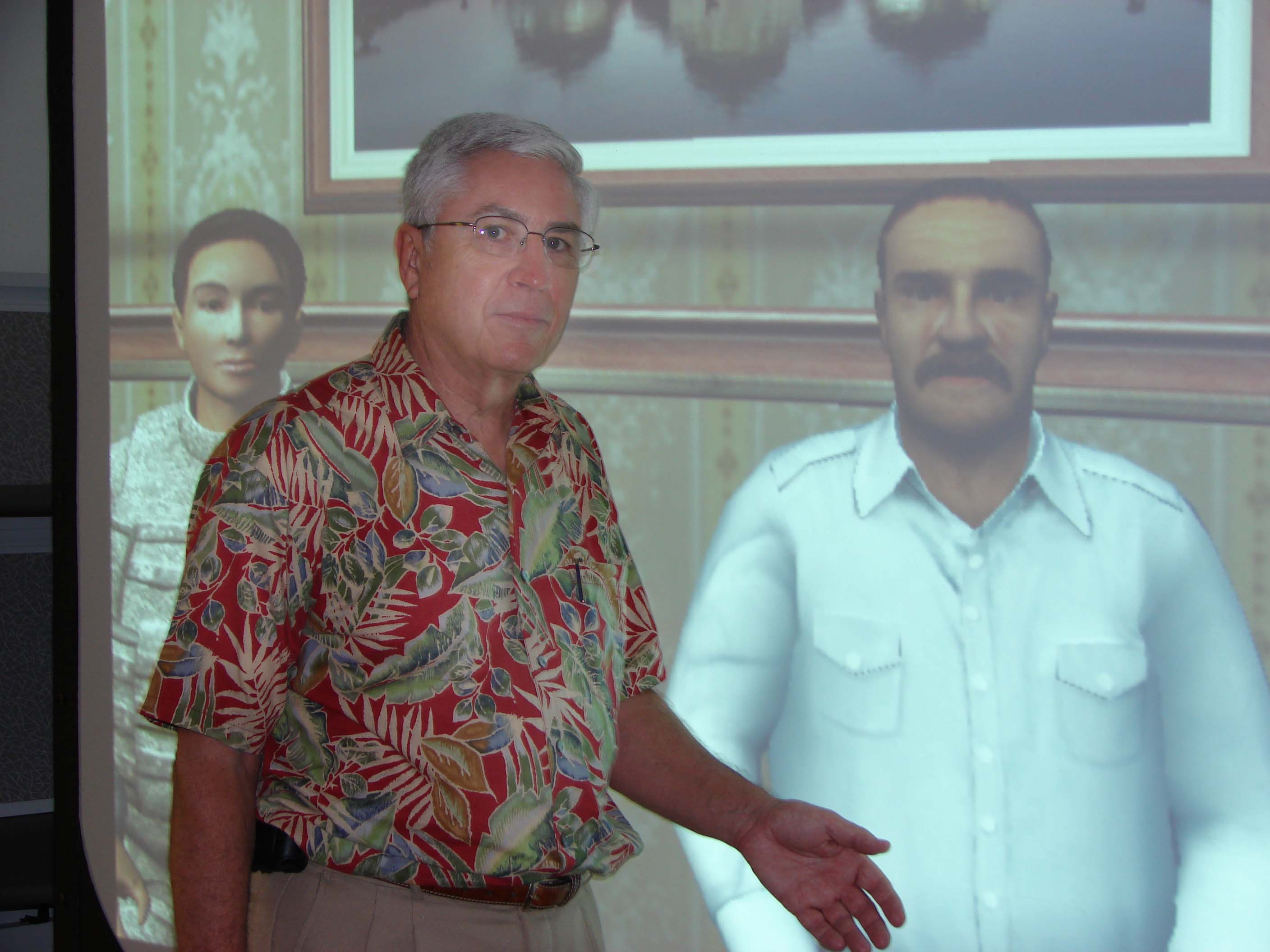SCHOFIELD BARRACKS, Hawaii - The young Soldier jumped up in frustration exclaiming, "This darn computer doesn't understand a thing that I am saying." Could it be that a real, live, foreign national interpreter might also not understand anything the Soldier had to say'
Patrick Morrissey, a retired Army interrogator working at the Battle Command Training Center, here, said that the Huminit Control Cell's computer-generated environment and avatars are very realistic, and present the same communication challenges he experienced in real-world Iraq.
During scenarios, he had to work hard and use his communication skills and questioning techniques to obtain necessary information. However, after two hours, just as he experienced with live interpreters and subjects in Iraq, he sometimes wasn't able to obtain the information he was after.
With HCC, Soldiers can meet Wahid Amir, the head of security for a local oil pipeline company in Iraq, or talk to Staff Sgt. Patrick, who was wounded when a booby trap bomb exploded while clearing a house in an Iraqi village. These are just a couple of the virtual environments and scenarios Soldiers can be immersed into, which provide proficiency training and help sustain, maintain and hone skills at interviewing and interrogation.
Amir, Patrick and Nadia are 3-D avatars that are used with a robust speech generation and recognition system to enable personnel to conduct interviews or interrogation in a very realistic environment. This includes the immersion of the Soldier into culture, language, scenario context and life-like interaction with the numerous personality types and normal circumstances often involved in mission performance.
The avatars behave in a culturally appropriate context for the scenario and use the foreign language for communication between themselves. The Soldier converses with the interpreter in English and must remember to be sensitive to the culture and manners of the avatars.
Scenarios include counterintelligence, counter-insurgency, traffic-control-points, subject interrogations, subject screenings, debriefings of friendly forces and detainee review boards. These scenarios are appropriate for, but not limited to, the Soldier who is on routine patrol, leaders at all levels and counter-insurgency operations, as well as intelligence personnel.
The system does not spoon-feed information to the interviewer/interrogator, so the Soldier must use their interview and interrogation skills to glean required information to answer mission objectives.
Regardless of rank or position, the HCC system will provide a stimulating and rewarding experience, equivalent to real-world encounters in the Iraqi or Afghanistan environments.
The HCC system is available for use at the BCTC, Building 1503, Schofield Barracks. The system is transportable with proper coordination and use of appropriate physical security controls.
To learn more about the Huminit Control Cell system, call 808-655-2810.


Social Sharing